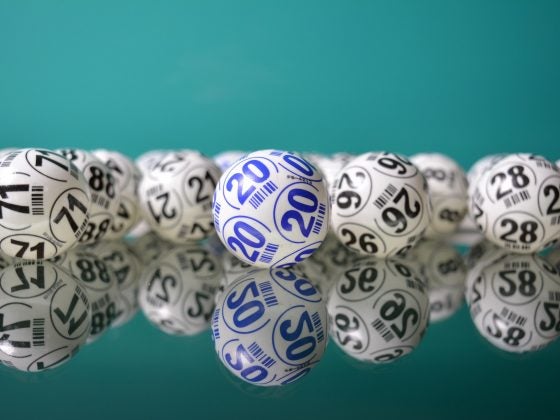Bingo has long been one of the most popular games played in the UK.
And while it used to be the game for the ladies, who would head out in the evening to gather with friends and play in one of the thousands of bingo halls across the UK – it is now played by millions of people across the world.
From the trenches and church halls to the dedicated bingo hall to the online version we have now, 90-ball bingo is as popular as ever.
But how did bingo end up being one of the most played games in the UK?
Although bingo has a long history, first being noted as Il Giuoco del Lotto d’Italia and then making its way to France to be renamed Le Lotto, it made its way to America. From there, a toy maker, Edwin Lowe, discovered it being played and created a version played with beans and called it Beano.
Legend has it that one of the players to win was so excited that instead of shouting Beano on her will, she yelled, BINGO! And Bingo is stuck, for there it travelled to the UK under its new name – housey-housey or tombola.
Gambling had always been in the UK dating back to as early as Queen Elizabeth’s reign – although it was often reserved for only those of an affluent background, people still played in the street. The State Lottery came to life in the 1710s, paving the way for the game of bingo that the British Army and the British Navy reportedly played.
There are recollections and writings about a game that was, at the time, called housey-housey and servicemen played that; although the game was called housey-housey, the winning word was still Bingo.
Churches have games of bingo to raise funds – but because of the stance of gambling for many, bigger charities were unable to use bingo to raise funds.
When men returned from service, they kept playing their beloved game of housey-housey, or in terms of the Royal Navy – tombola.
In 1937, a police report noted down, for the first time, the game of 90-ball bingo with great detail. Including that regardless of how legal it was, people would queue to wait for a clear board.
An assistant would take the payment, while another would hand it to players, who would call the number and then put it in the box. It’s much slower than the speedy 90-ball online bingo we have today! Because of how long it took, the callers would make rhymes with the numbers – like leg eleven and so on.
Between 1918 and 1960, housey-housey made its way to seaside resorts all over the UK – and eventually, it had some legislation attached to it. For a while, no more than £10 could be spent on prizes.
A common procedure by game runners was to pay a portion of the funds to charities to smooth the way for uninterrupted gameplay. Lillian Beckwith, an author, once described her winnings from a game of bingo to include a black teapot, a purple and gold vase, or a large tin of toffees.
For many years, housey-housey – which was called bingo more commonly by 1939 – was used to raise funds for various causes as a means to legitimise it.
From the church halls to dedicated venues
Since bingo has been played in multiple venues, it is almost impossible to note which one was the true first venue for the game. However, bingo was so popular that two of the biggest cinemas, the Gaumont in Peckham and the Odeon on Hackney Road, were turned into bingo halls in 1961. At this point, it was still the 90-ball bingo game that reigned supreme. Bingo halls became the place to be at the weekend or even in the afternoons.
By 1963, there were a vast 14 million club members, and it could be classed as the golden age for land-based bingo. While there used to be a bingo hall on every corner, and they could easily hold thousands of players on any given night, there are just 600 bingo halls left in the UK.
And while that might sound like bingo is disappearing in the UK, in reality, there are more online players than ever before.
The game of 90-ball bingo is played online every day by thousands of UK players, 78% of whom play at least once a week.
Why is 90-ball bingo so popular in the UK?
It would be fair to say that bingo is one of the most played games in the UK since the turnover for bingo in Britain between April 2021 and March 2022 was 180 million pounds.
Bingo has been part of how people come together in the UK to spend time. Troops used it in their downtime as they travelled long distances, and it has never been easier to play than it is right now. Housey-housey has come a long way, and the 90-ball version is available online from all the best-known bingo halls in the UK.
The switch to online bingo was made easy with free play, reduced-price games, and 24/7 game rooms.















